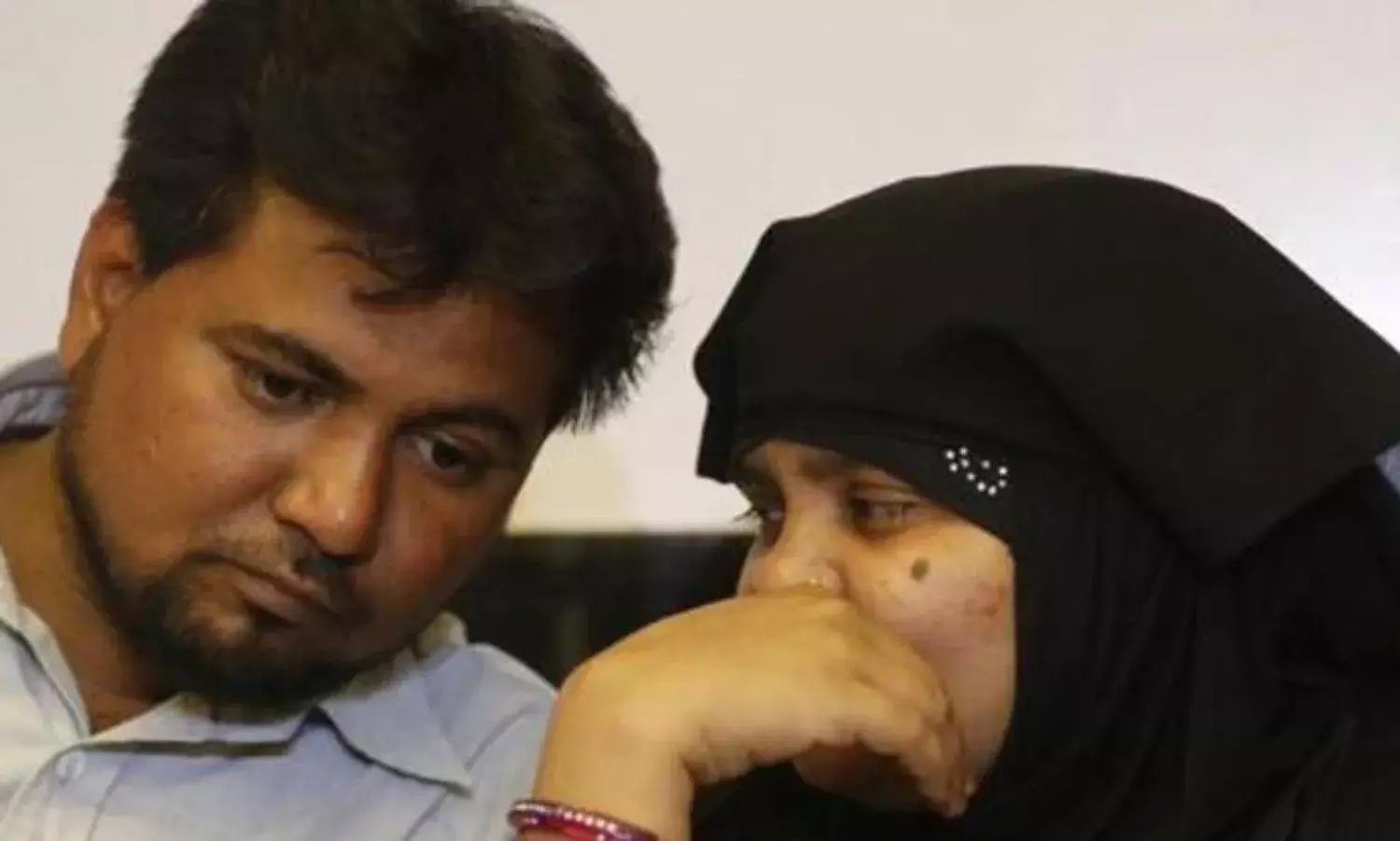A Comrade Not Just a Husband - Yakub Patel Describes His 17 Years Beside Bilkis Bano
‘To work with other rape victims, and make a happy family for ourselves’

“I want all husbands of India to be like me, and not succumb to pressures from society, but stand by their wives who have been victims of a crime as brutal as gangrape,” Yakub Patel tells The Citizen.
Yakub, 45, is the husband of Bilkis Rasool Bano, who was gangraped in the 2002 Gujarat genocide and was recently awarded ₹50 lakhs as compensation by the Supreme Court.
His support for Bilkis’s struggle for justice through the last 17 years has been exemplary, quite unlike the typical male mindset which is vulnerable to patriarchal notions and societal pressure. Yakub stood by Bilkis in her struggle for justice not just as a partner, but as comrades struggling together.
The two were married in 1998, in their village in the Godhra district of Gujarat. The marriage was arranged but they fell in love with other soon thereafter, and resolved to be together and lead a happy family life. He says they were a perfect, happy couple with a child, until 2002 when violence broke out across Gujarat.
“We were a happy family, we had a kid and Bilkis was expecting another child that summer. But then came a storm that destroyed our lives. The violence that broke out in the winter of 2002 took away many of our dreams. It left such a strong scar on our minds that we have been living with its mark even today,” Yakub recalls with sadness.
Recounting the day he lost touch with Bilkis amid dreadful violence, he states that she was gangraped on March 3, 2002 while she was trying to flee her village, Randhikpur.
The family were fleeing in a truck with 17 people inside when the vehicle was attacked. A mob raising slogans of Jai Shree Ram killed 14 people travelling in the truck.
“We were all running around trying to save our lives. Bilkis was five months’ pregnant and we had another daughter whose name was Saleha. The butchers did not spare the kids. Saleha’s head was smashed against a stone. She was three years old. They left Bilkis for dead.
“After not hearing from them for days I was convinced that they had been killed, and started consoling myself for the loss. But then I read a report in a paper which mentioned a woman called Bilkis living in a relief camp. I immediately rushed to the camp in Godhra and found my wife there.
“I hugged her and promised that I would not let her live and struggle alone, and would stand by her in the upcoming fight. I am happy that 17 years after that day I am here again with Bilkis to rejoice in our victory,” says Yakub.
To call it hardship would be underestimating their fight for justice. Initially the couple went from pillar to post to file an FIR. Then they had to fight a system that was trying to save the perpetrators. Yakub was not well off financially but he did not lose his resolve.
They kept shifting homes all this while, to be safe while the case was going on.
“I had no job to support myself or my family. The stress of the case and the indifference of the state machinery added to my miseries. I worked as a daily wage labourer whenever I could, and tried to sustain my family.
“Not just emotionally, financially all these years were draining for me, and at times I would just sit back and wonder why all this happened to us. But never did the question of leaving Bilkis come to my mind,“ Yakub recounts.
On being asked what motivated him, Yakub promptly replies, “I don’t think there is anything extraordinary in what I did. I just stood by the woman who I had resolved to be with forever. Why should her being subjected to a crime make me want to leave her? Any man doing that would be a coward, and thankfully I am not one.”
Yakub plans now to return to his home state, Gujarat, with his wife Bilkis and start a new life together with her, with new dreams and ambitions. One of them is to ensure their daughter grows up to be a lawyer, the daughter who was in Bilkis’s womb while the mob raped her.
“We will make sure it’s a new beginning, for the scars we have will remain but we will not let them affect us now. We have a life ahead which also has a larger purpose now: to stand by people fighting battles like ours. To work with rape victims and also make a happy family for ourselves,” Bilkis tells The Citizen.
See here for our interview with Bilkis Bano after the Supreme Court ruling.



